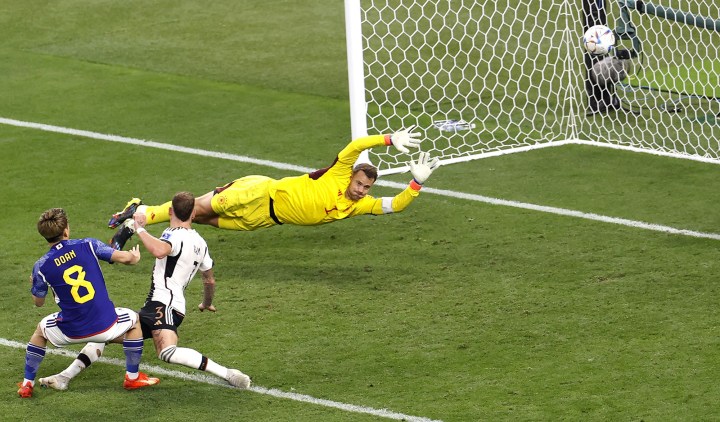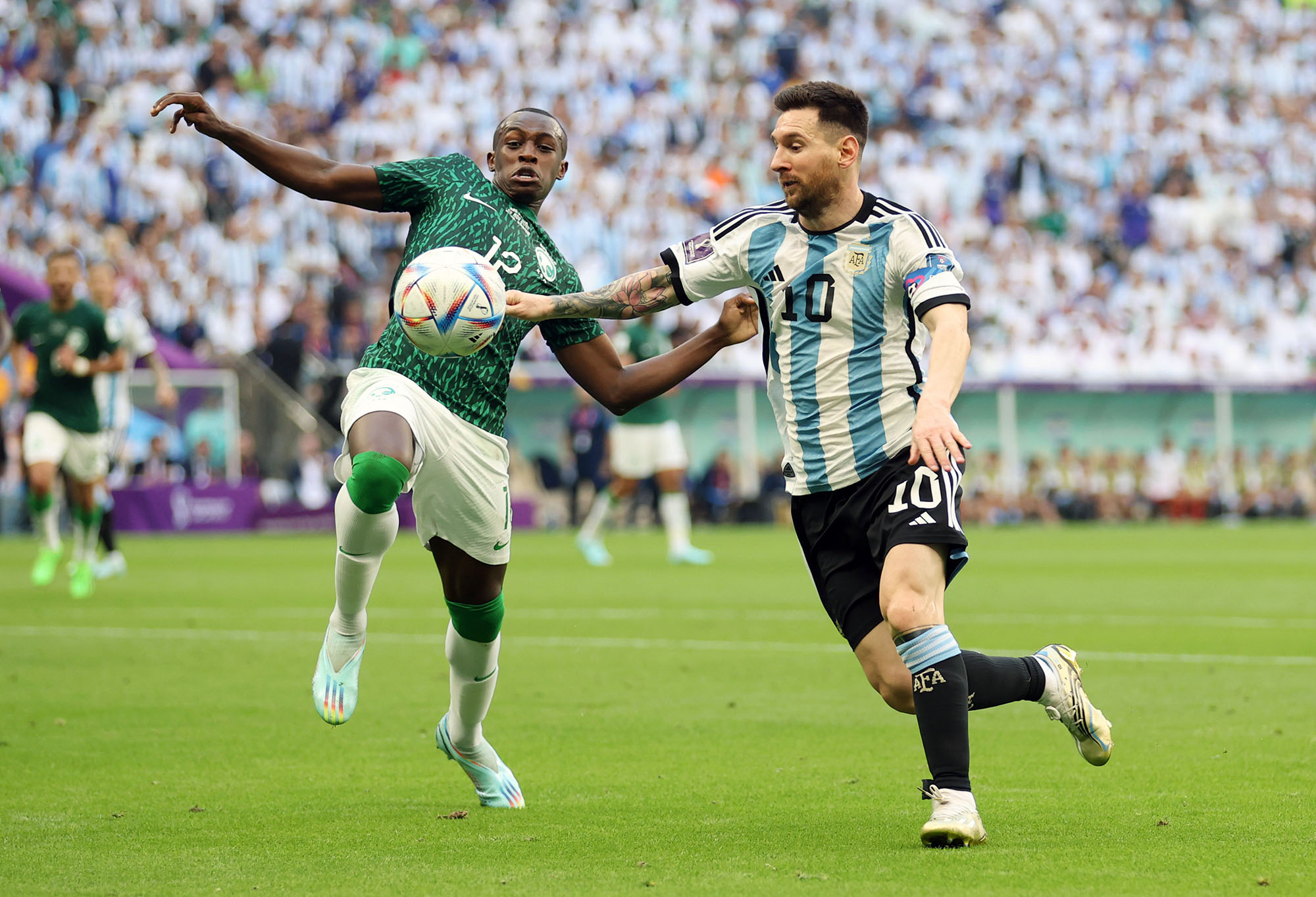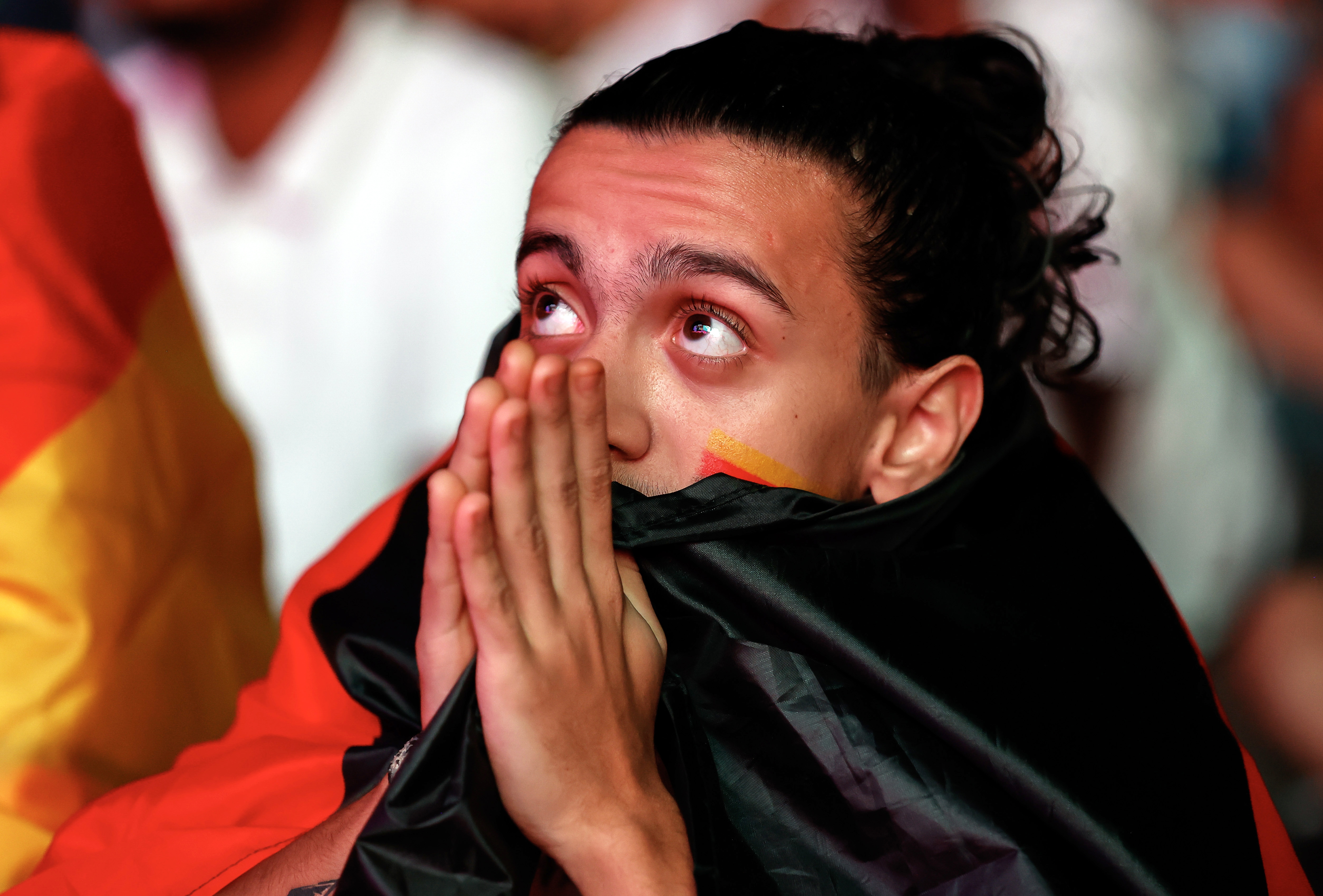QATAR 2022
World Cup shocks — do group stage surprises make for a less entertaining football tournament?

The 2022 Fifa World Cup in Qatar has thrown up some big shocks, making for superb drama. But is it good for the tournament in the long run?
The opening week of World Cup 2022 has been a mixed bag, and difficult to characterise overall.
There have been a worrying number of goalless draws and a couple of thrashings dished out by England and Spain. But most memorable so far have been two genuine surprises, both similar in nature. Saudi Arabia and Japan inflicted 2-1 defeats on Argentina and Germany, respectively, both having been 1-0 down at half-time.
Both are, without question, the most legendary World Cup wins in the history of those two nations.
All this inevitably prompted debate about the greatest World Cup shocks ever. The usual candidates sprung to mind — Senegal against France in 2002, Cameron against Argentina in 1990, USA against England in 1950. But perhaps there’s also a wider question to be asked: are several shocks actually good for a tournament?

Lionel Messi of Argentina battles for possession with Saud Abdulhamid of Saudi Arabia during the Fifa World Cup Qatar 2022 Group C match between Argentina and Saudi Arabia at Lusail Stadium on 22 November 2022 in Lusail City, Qatar. (Photo: Catherine Ivill / Getty Images)
Shock absorber
Football, and the World Cup more generally, are built for shocks. Football’s status as the lowest-scoring sport around means quality doesn’t necessarily translate into good results.
We’ve always known that, of course, but in the era of expected goals (xG) we can discover that both Saudi Arabia and Japan actually “lost” in terms of xG — although that shouldn’t take anything away from their performances.
Neither side would get a single player in the starting XI of Argentina or Germany — perhaps you can make an argument for a Japan defender — and simply by reducing the xG difference between the sides, they gave themselves the chance of an upset.
The knockout stage, by its nature, allows for shocks. But even the group stage is played over a short period of three games, from which we draw grand conclusions.
It’s worth considering how club football might look if the main competition was decided over the course of three games. Arsenal, currently top of the Premier League, started last season with three straight losses.

A fan of Germany reacts while watching the Fifa World Cup 2022 Group E match between Germany and Japan at Fan Festival grounds in Doha, Qatar, 23 November 2022. (Photo: EPA-EFE / Rolex Dela Pena)
Margin for error
Three games, though, is about right for the World Cup group stages. It allows for a big side to get defeated once by an outsider without definitively eliminating them from the competition. It allowed Spain, for example, to recover from a 1-0 defeat to Switzerland in their first match of World Cup 2010, eventually going on to win the competition.
And that’s good for us as neutrals because, ultimately, the knockout stages are best when pre-tournament favourites play one another.
If that sounds harsh on the underdogs, it’s worth remembering that shocks generally come in two different forms. Either the underdog’s victory is slightly fortunate considering their performance, and they’ve defied the xG gods. In which case the result probably doesn’t lend itself to future classic matches.
Alternatively, it’s a park-the-bus job, and while a clash of styles can be interesting, you don’t generally want two defensive sides playing one another in the knockout rounds.
It is, alas, rare for an underdog to win by comprehensively outplaying one of the favourites. The best example of a match such as that in this tournament, Canada’s excellent performance against Belgium, somehow resulted in a defeat. The big sides often manage to find a way.

A fan of Saudi Arabia cheers on the team during the Fifa World Cup Qatar 2022 Group C match between Argentina and Saudi Arabia at Lusail Stadium on 22 November 2022 in Lusail City, Qatar. (Photo: Catherine Ivill / Getty Images)
When there’s a highly dramatic group stage, with several favourites falling, the knockout stage tends to be underwhelming. World Cup 2002 is a good example.
The two tournament favourites, France and Argentina, both crashed out in the group phase. Portugal did too, while Italy squeezed through their group but then lost in the second round. It was brilliant entertainment.
Only four of the eight pre-tournament favourites reached the quarterfinal stage — Brazil, England, Germany and Spain.
There were only two knockout clashes between those sides: Brazil beat England 2-1 in the quarterfinal, and Brazil beat Germany 2-0 in the final.
Significantly, those were also the only two of the seven knockout matches that featured more than one goal. The other five results, all involving an outsider, finished 1-0, 0-0, 1-0, 1-0 and 1-0.
They weren’t walkovers, clearly, but they were characterised by the underdogs playing defensively. It was notable that Senegal, an unfancied side who became the neutrals’ favourites, played overwhelmingly defensively in their quarterfinal loss to Turkey.
Afterwards, a couple of Senegal players lamented their team’s lack of belief. And you don’t want quarterfinalists who don’t truly believe.
World Cup 2006 was the opposite. Can you remember much about the group stage? Probably not. Of the nine most fancied sides, seven made the final eight. The two exceptions were Spain and the Netherlands, who were knocked out by fellow favourites in the second round.
Granted, maybe it was a bit predictable. But from then, we had Argentina somehow failing to beat Germany despite their brilliant squad, we had Zinedine Zidane against Brazil, we had Fabio Grosso’s curler against Germany, and we had a final featuring unparalleled drama.

Lionel Messi of Argentina reacts during the Fifa World Cup Qatar 2022 Group C match between Argentina and Saudi Arabia at Lusail Stadium on 22 November 2022 in Lusail City, Qatar. (Photo: Matthias Hangst / Getty Images)
Visit Daily Maverick’s home page for more news, analysis and investigations
Rare clashes
The irregular nature of international football means it’s a different situation to the club game. Constant match-ups between Europe’s elite make the Champions League boring and repetitive.
There’s nothing better than a side like Villarreal battling their way to the semifinals, providing a feel-good story and saving us from a fixture we’ve seen many times before.
But internationally, we only get one opportunity every two years for big European sides to face one another, and only one every four for Argentina and Brazil to face Europe’s best. Giants going out early provides short-term excitement but compromises things later on.
Ultimately, it’s about performance. No one has an automatic right to go through. Belgium, for example, have been shambolic, were fortunate to beat Canada and deservedly lost to Morocco.
If a big nation self-destructs because of their own incompetence, we’re better off with an underdog with togetherness. And if anyone is truly capable of doing a Denmark 1992, fantastic.
But the World Cup classics tend to come when the big boys face off. The likes of Argentina and Germany suffering shock defeats is great — but I’d also love to see a Leo Messi versus Manuel Neuer showdown one last time. DM
This article originally appeared in The Athletic.

















TL;DR: “when a big team loses to a small team I’m worried the small team will not be as exciting as the big team in the next round because I like my entertainment to be nothing more than having my apriori expectations met. I’m an emotional infant when it comes to football.”